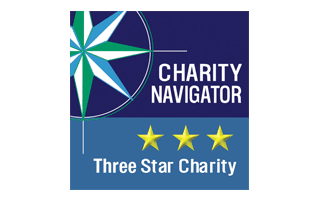Published February 8, 2019, by Michele Brown
The Jan. 9 public meeting about Anchored Home, the city’s three-year plan to make homelessness rare and brief, offered a lesson in the contrast between long-range change and tonight’s needs.
One man, who described himself as someone who does triage with the homeless, told those gathered at the Loussac Library’s Wilda Marston Theatre that he needed a warm pair of gloves. Now.
One of the women of Anchored Home’s youth advisory group offered a pair from the stage. The man collected more gloves from the audience, saying, “I love you,” to the donors, and “This is how we get things done, people.” He passed the gloves up to several men sitting in the back rows.
The gifts of gloves seemed to soothe him after some of the evening’s presentation had riled him. Fluent in body language, he spoke in agitated tones during opening remarks by Mayor Ethan Berkowitz. He had no use for the live polling by clicker that was part of the presentation; when the audience was asked to click their answer to how much they thought the city had increased spending on illegal camp abatement, he muttered, “Tell us; this isn’t a game show.”
To those contemplating a bitter night outside the library doors, the meeting’s highest value might well have been a few hours of warmth. Jasmine Khan, director of the Anchorage Coalition to End Homelessness, did offer something more – starting that night, the Downtown Transit Center would serve as an emergency warming station when the temperature dipped to 10 degrees. Spartan digs, but better than outdoors.
“I’m hearing folks talking about life and death,” Khan said.
Power points wilt in that conversation, but here’s the thing: We must try to meet tonight’s needs yet remain true to the long-range mission.
Nancy Burke, the city’s housing and homelessness coordinator, made the reason clear. While a three-year plan does nothing for tonight, if we don’t pursue that plan, we’ll gather year after year in futility and frustration. More of our neighbors will see more nights in the cold because we didn’t keep our eyes on the prize of reaching “functional zero” for homelessness – where we have the means to house and support all in need — and prevention.
Prevention and diversion is the part of the Anchored Home plan that United Way of Anchorage is taking on. The challenge is familiar.
We estimate that 16,000 Anchorage families with children live on an annual salary less than the minimum to cover safe housing and basic expenses. Many of low- to middle-income Anchorage households spend 30 to 50 percent of their income on housing. That’s a lot of people on the bubble, one layoff or medical crisis from foreclosure or eviction. And we Alaskans have learned again in the last two months that forces beyond our control — 7.0 earthquake, government shutdown — can disrupt any of our lives. “There but for the grace of God” can swiftly become “there.”
In 2018 we heard from about 3,000 people seeking rent or utility assistance on our 2-1-1 line, where we refer people to help. Referrals were available to only about half the callers, because there simply isn’t enough rental and utility assistance to meet the need. For so many others, 2-1-1 specialists asked questions like: Have you tried a food pantry, so you can shift some of food money to rent? Will that help make the difference to avoid eviction?
So, at United Way we aim in 2019 to fortify and better deploy the community’s short-term resources so we can pre-empt long-term homelessness and all the personal and social woes that come with it.
Several people who experienced homelessness sat on stage and fielded an audience member’s question wanting to know what they felt their responsibility was to get their own lives on sound footing.
Dash Poppoalii, a member of the Youth Task Force of the Anchorage Coalition to End Homelessness, testified about growing up being abused. “Everyone has a different circumstance and situation,” she said. “Some of them are born into the situation and have no control over it. Covenant House, that was the best thing that ever happened to my life.”
Jonathon Cannon talked about being raised by drug dealers and dealing himself as teenager. That was the only life he knew until he found some help. “For the last 20 months now, I’ve been clean.”
And Rose Hubbard told some of her story, a series of bad luck and bad decisions that led to drugs and finally hitting bottom and the realization that “I want to live. I want more than just survival.” She and her husband had help from RurALCAP to find housing. Now she’s an advocate for the homeless herself.
The point they all made was they needed help — but worked to make that help count. They didn’t seek a waiver of responsibility. They did seek understanding.
The conversation of the 9th had some rough edges. At worst there was an echo of Alexander Solzhenitsyn’s novel “One Day in the Life of Ivan Denisovich:” You can’t expect a man who’s warm to understand a man who’s cold.
But that understanding is a vital part of Anchored Home. The conversation has become part of the plan; both are works in progress. As Rose Hubbard said, “We’re on the right path. We just need a little more community.”





